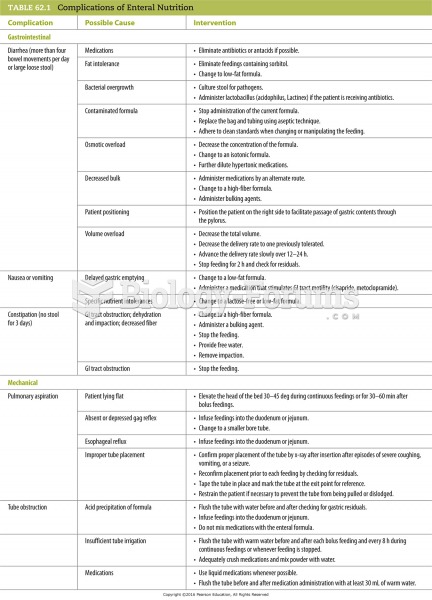|
|
|
In the United States, congenital cytomegalovirus causes one child to become disabled almost every hour. CMV is the leading preventable viral cause of development disability in newborns. These disabilities include hearing or vision loss, and cerebral palsy.
Medication errors are more common among seriously ill patients than with those with minor conditions.
In the United States, an estimated 50 million unnecessary antibiotics are prescribed for viral respiratory infections.
There are more nerve cells in one human brain than there are stars in the Milky Way.
Your skin wrinkles if you stay in the bathtub a long time because the outermost layer of skin (which consists of dead keratin) swells when it absorbs water. It is tightly attached to the skin below it, so it compensates for the increased area by wrinkling. This happens to the hands and feet because they have the thickest layer of dead keratin cells.







